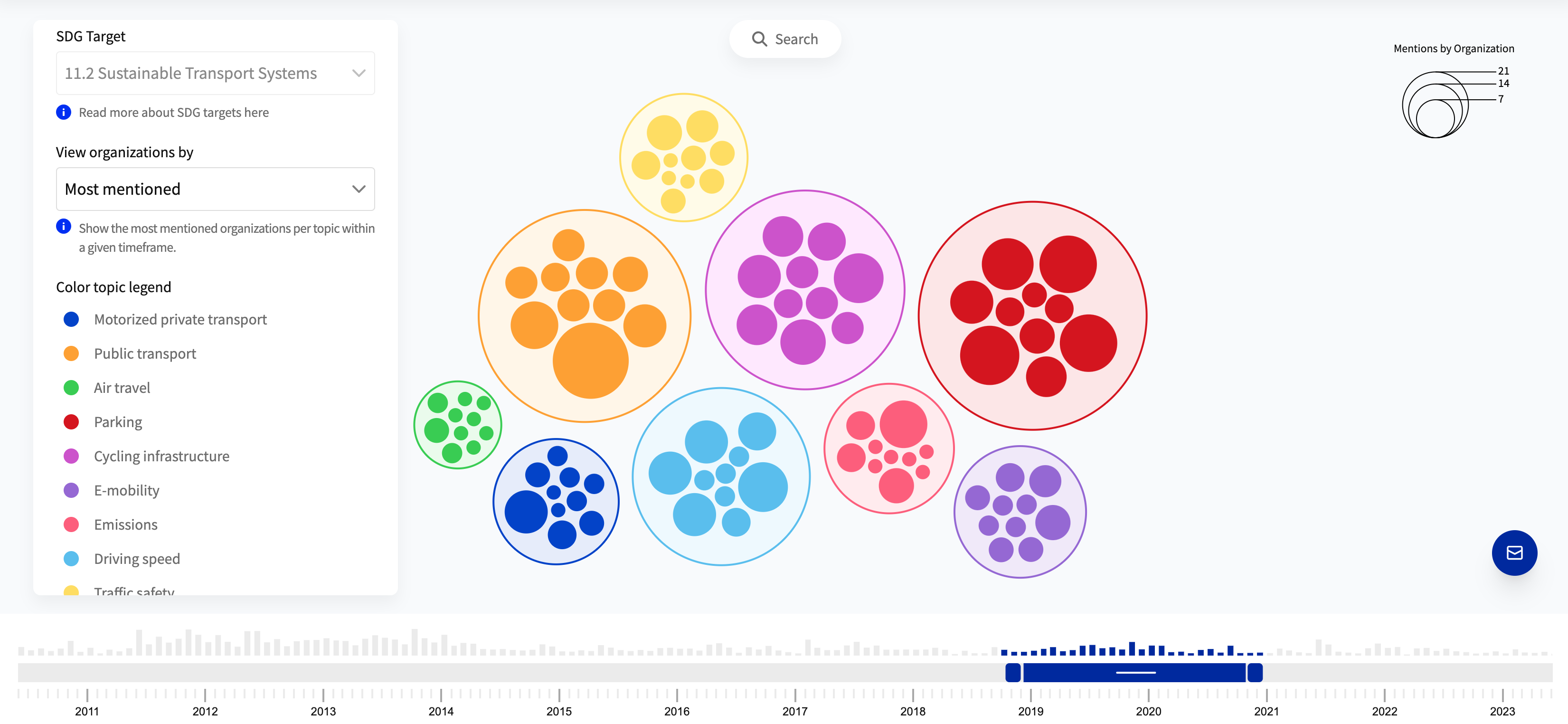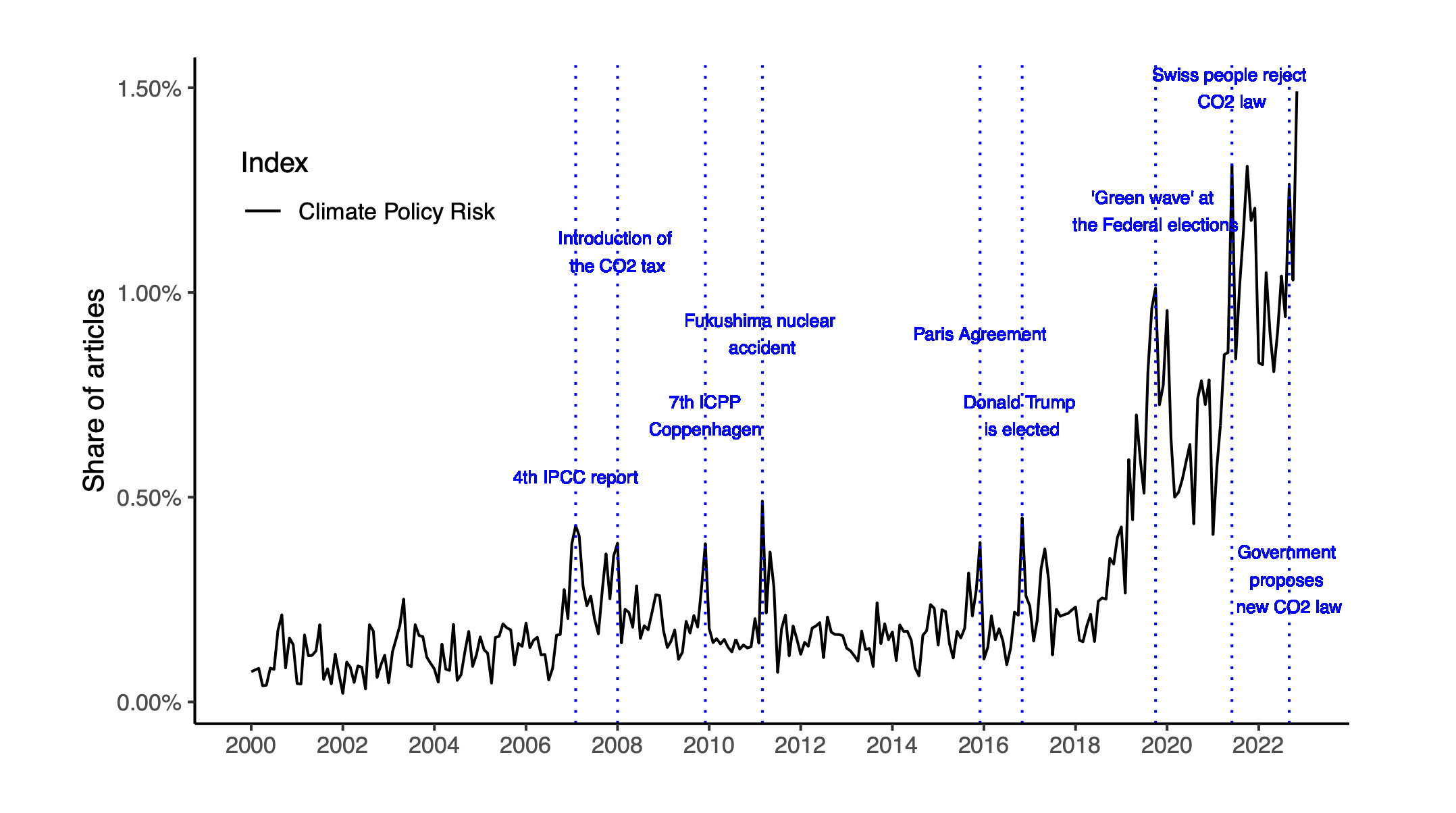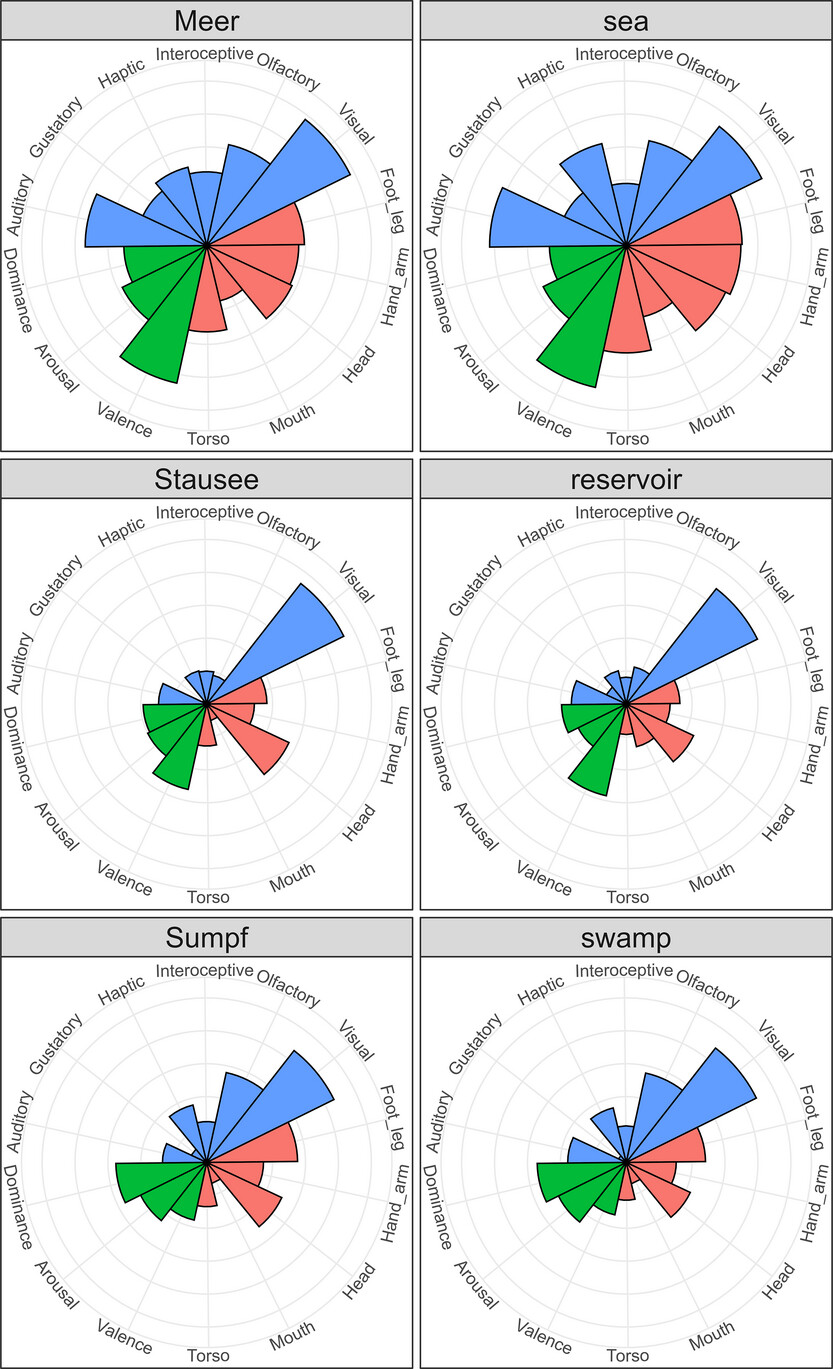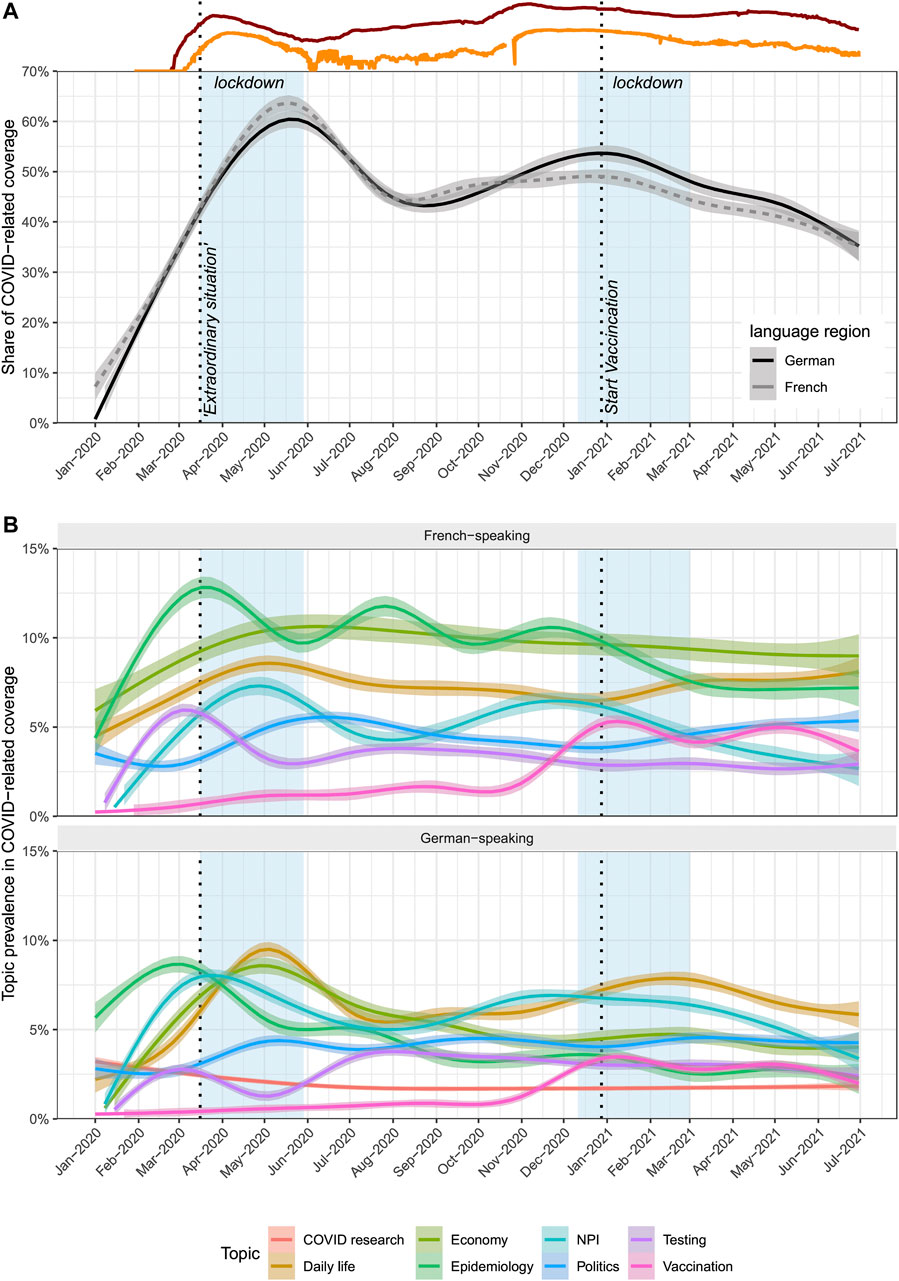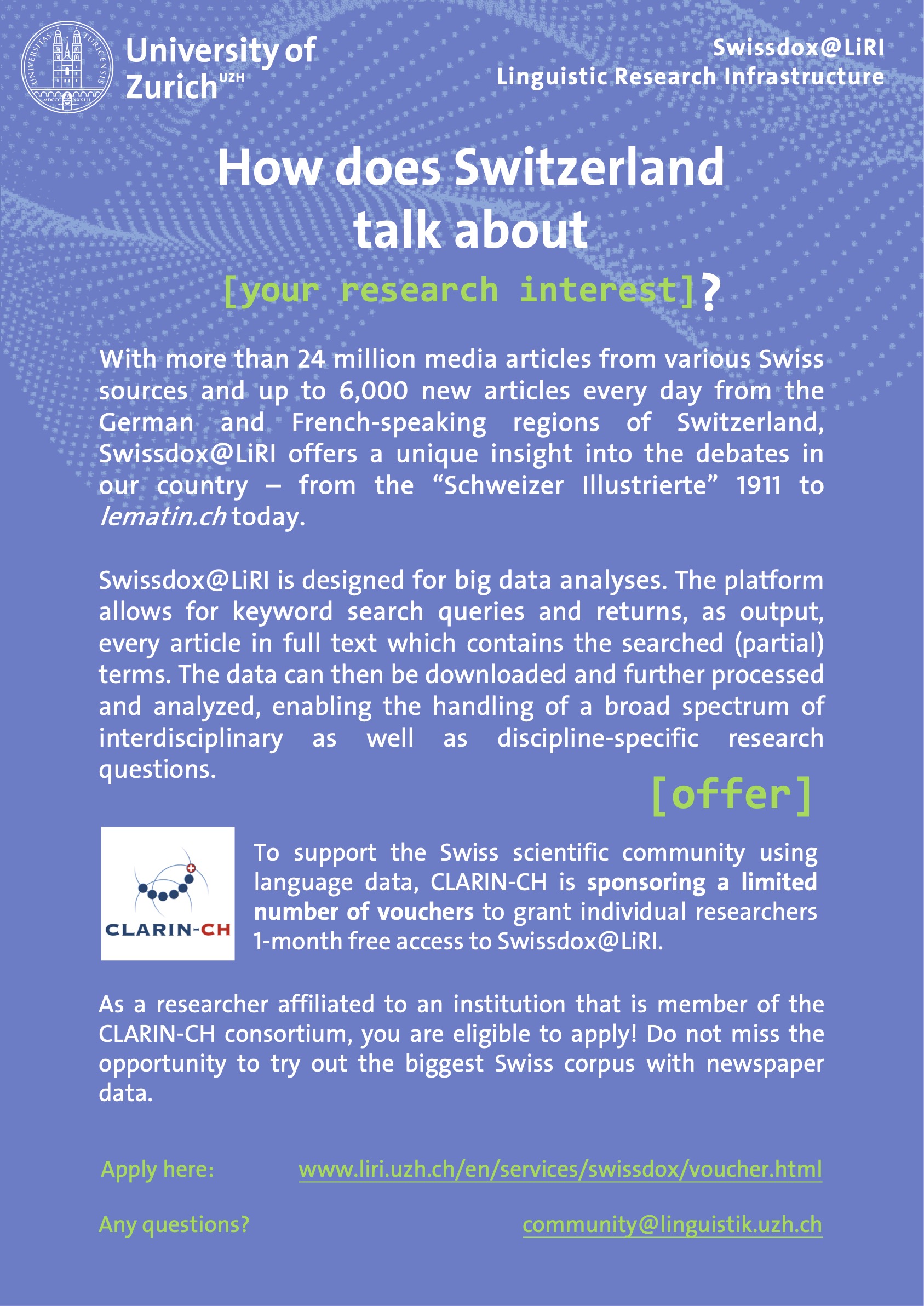Research Projects Using Swissdox@LiRI Data
In the following we collect and present examples of research projects, papers or analyses that make use of Swissdox@LiRI data. If you'd like to have your project be linked here as well, please reach out to LiRI's corpus data community manager by email: community@linguistik.uzh.ch
Table of contents
- SwissBERT: The Multilingual Language Model for Switzerland
- Sustainability Discourse Map
- Climate Policy Risk and Asset Prices in Switzerland
- Conceptualizing Landscapes Through Language: The Role of Native Language and Expertise in the Representation of Waterbody Related Terms
- Covering the Crisis: Evolution of Key Topics and Actors in COVID-19 News Coverage in Switzerland
SwissBERT: The Multilingual Language Model for Switzerland
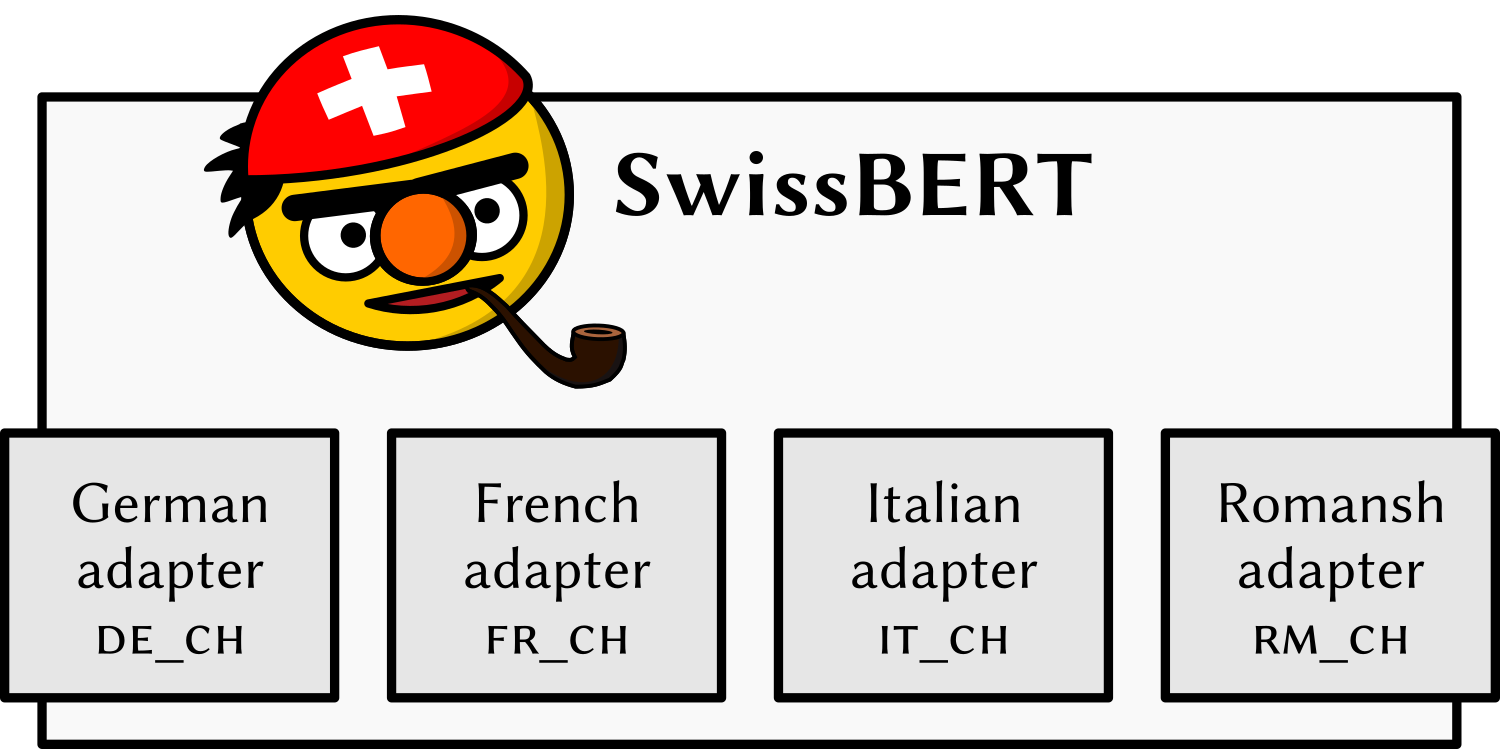
SwissBERT is a masked language model created specifically for processing Switzerland-related text. SwissBERT is a pre-trained model that was adapted to news articles written in the national languages of Switzerland – German, French, Italian, and Romansh. It has been trained on more than 21 million Swiss news articles retrieved from Swissdox@LiRI.
Evaluating SwissBERT on natural language understanding tasks related to Switzerland showed that it tends to outperform previous models on these tasks, especially when processing contemporary news and/or Romansh Grischun. Since SwissBERT uses language adapters, it may be extended to Swiss German dialects in future work. The model and the open-source code are publicly released at this https URL.
Sustainability Discourse Map
The Sustainability Discourse Map presents a historical and current overview of the discourse around urban sustainability in Zurich, with the goal to enable Zurich's inhabitants to stay informed about what is and has been happening in urban sustainability, as well as find the right organizations to connect to become active.
The application is built on 13 years worth of Swissdox@LiRI media data. The project team built an automated system to process this data, and more precisely to:
Split newspaper articles into paragraphs
Filter out paragraphs that are related to an urban sustainability target
Identify what discourse topics occur in these paragraphs related to a sustainability target
Identify what organizations occur in these paragraphs
Organizations can be from all societal sectors (administration, private sector, civil society, politics, science)
Identify the stances organizations take in the media regarding key policy issues (not yet implemented)
Climate Policy Risk and Asset Prices in Switzerland
Researchers at University of Lausanne have developed an index of Climate Policy Risk using text-analysis techniques on a large number of Swissdox@LiRI media articles for the period 2000-2022.
The index captures a number of important international as well as domestic transition risk events. The researchers consider two complementary approaches to explore the asset pricing implications of Climate Policy Risk. First, they adopt a mimicking portfolio approach and show that a simple CO2-based and sector-balanced portfolio is a valuable hedge to Climate Policy Risk innovations, both in and out-of-sample. These hedging properties are particularly clear towards the end of the sample. Second, to better identify the source of transition risk, they adopt an event-study approach and investigate the stock price response of firms depending on their CO2 emissions. The study finds that CO2-intensive firms perform significantly worse than their greener counterparts following events that increased transition risk. Overall, this paper provides evidence on the pricing of climate transition risk in Switzerland. The working paper is available here.
Conceptualizing Landscapes Through Language: The Role of Native Language and Expertise in the Representation of Waterbody Related Terms
Landscapes are essential to human life: They provide a multitude of material (food, water, pollination) and nonmaterial (beauty, tranquility, recreation) values. Their importance is enshrined in international conventions and treaties, committing signatories to protecting, monitoring, and managing all landscapes. Yet, relatively little is known about how people conceptualize “landscape” and its constituents.
There is emerging evidence that conceptualizations of landscape entities may influence landscape management. This in turn raises the question as to how people speaking different languages, and with differing levels of expertise, may differ in conceptualizing landscape domains as a whole.
A research team at University of Zurich investigated how people conceptualize landscape-related terms in a specific domain—waterbodies—by comparing German and English-speaking experts and nonexperts. The German corpus was based on Swissdox@LiRI data. Speakers of all groups appear to conceptualize the domain of waterbody terms in comparable ways. Nevertheless, subtle differences across languages for nonexperts were uncovered. For example, there were differences in which waterbodies were associated with calm happiness in each language. The findings suggest the ways in which people relate to landscape although shared in many respects may also be shaped in part by their specific language and culture. The paper can be read here.
Covering the Crisis: Evolution of Key Topics and Actors in COVID-19 News Coverage in Switzerland
The goal of this study done by researchers of University of Lucerne, University of Fribourg, and Swiss Paraplegic Research is to map the share of COVID-related news articles over time, to investigate key subtopics and their evolution throughout the pandemic, and to identify key actors and their relationship with different aspects of the discourse around the pandemic. The study uses a large-scale automated content analysis to conduct a within-country comparison of news articles (N = 1,171,114) from two language regions of Switzerland during the first 18 months of the pandemic; more specifically, the researchers' total sample of media coverage included 1,171,114 articles from Swissdox@LiRI.
In short, the study showed that news media coverage of the pandemic largely mirrors key epidemiological developments in terms of the volume and content of coverage. Key actors in COVID-related reporting tend to be included in news articles that relate to their respective area of expertise. Read more here.
